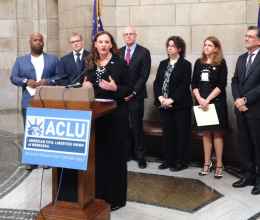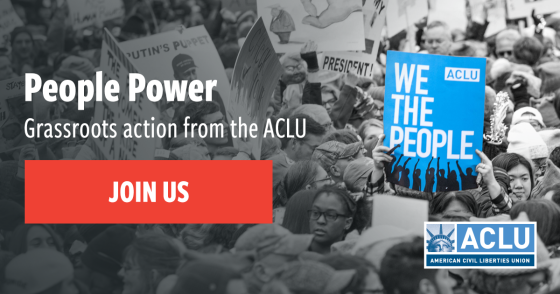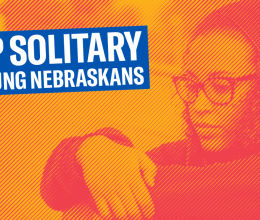
LINCOLN, Neb – Today the ACLU of Nebraska released the findings of a research project surveying county election officials in all 93 counties. According to the ACLU, nearly half of the county election officials contacted provided inaccurate information related to voting rights for those with a felony conviction. In Nebraska, someone with a felony conviction can register to vote two years after completing all of the terms of a sentence.
“Voting is the cornerstone of our democracy and the fundamental right upon which all our civil liberties rest,” said ACLU of Nebraska Executive Director Danielle Conrad. “Nebraskans that have completed their sentences have a right to participate in our democracy. Over ten years ago the Nebraska Legislature restored voting rights for people with a felony conviction but sadly today a significant amount of confusion still exists. These survey results are a call to action. Nebraskans must work together to strengthen public education efforts about ex-felon voting rights and work to identify training opportunities for all our hard-working county officials to ensure no eligible voter is turned away."
The investigation involved an ACLU volunteer contacting each county and asking “Can a former felon register to vote?” 47 of 93 counties provided inaccurate information. The ACLU says more counties initially provided wrong information but followed up with correct information. Among the responses from county election officials were responses such as a simple "No," to “You can vote if it’s been five years,” “You can vote if you’ve had your rights restored by the court,” or “It depends on what your charge is.”
“I believe everyone deserves a second chance,” said former State Senator and former ACLU of Nebraska Executive Director DiAnna Schimek who introduced the 2005 legislation giving those with a felony conviction the right to vote after two years in Nebraska. “Our democracy is strongest when as many people as possible can participate. Someone who has served his or her sentence and made amends to society should be able to engage in his or her civic duty and vote.”
“Given that Nebraska’s criminal justice system disproportionately impacts low-income Nebraskans and people of color, we must also be concerned about whose voice is potentially being silenced at the ballot box,” said Conrad. “In the three years since the United State Supreme Court gutted the Voting Rights Act a host of new voting restrictions have been implemented across the country. The ACLU is proud to have been part of a diverse coalition that has beat back discriminatory voter ID legislation year after year but we now must turn our attention to removing existing barriers that have been erected to eligible voters ability to register and to vote.”

